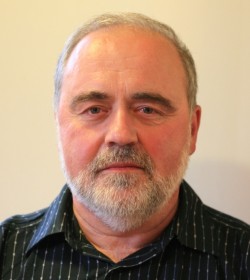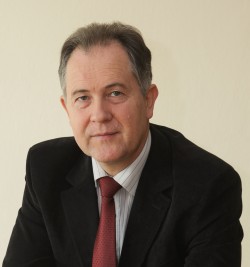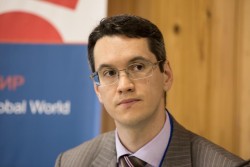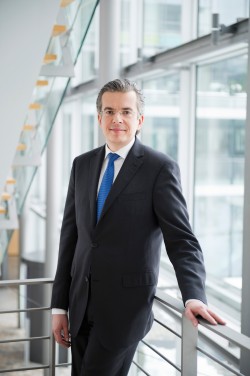Session 9: The Russian Dilemma: What Kind of International Order is Russia Seeking?
The international order defined by the West is no longer a premise simply taken for granted by the “rest” of the world. Not surprisingly, Russia has its own ideas of what kind of international order ought to be established. When one asks the Russians, the reasons for their aggressive (previously called: assertive) foreign policy are many. Their ruling class feel that Russia has been disregarded, disrespected, and marginalized. They had come to believe that Russia’s opposition to projects or decisions had no effect and that its security interests were not considered to be of equal importance to those of their Western counterparts. Furthermore, Russia views NATO as an alliance directed specifically against Moscow. It believes that key European countries have exploited the EU for the same purpose, and it detects critical developments almost everywhere: in Ukraine, Syria, Moldova and Georgia, as well as increased relations with India and deepening relations with China.
Putin has responded by putting forward policies based on a broader interpretation of Russian nationalism. He has set the project of a Eurasian Union against EU expansion, increased Russia’s attention to global powers and emerging players, renewed emphasis on military power and presence, and he has increased his involvement in global status politics. For Russia, the Cold War had elements of sharp difference and competition, but was based on an accepted status quo, on strategic parity, and on political respect. Furthermore, it involved both sides cooperating to reinforce both parity and respect. Russia now seems determined to reestablish this state of relations.
From a Western perspective, even if Russia is viewed as an opponent, it will still make sense to engage with Russia on economic cooperation and to seek ways of building interdependence. However, such cooperation is unlikely to be as comprehensive or as deep as it could have become under the premise of partnership.
Discussion topics:
1. Which are the values that Russia shares with the EU?
2. What are the implications of Russia’s new interventionism?
3. Can Russia and the EU function without each other, bearing future challenges in mind?
4. What are the effects of sanctions and counter-sanctions between Russia and the EU?
Speakers:
Marcus Felsner‚ Chairman, Osteuropaverein (the Eastern Europe Business Association of Germany)
Sharyl Cross‚ Director of the Kozmetsky Center at St. Edward’s University, Austin, USA and Global Policy Fellow, Kennan Institute Woodrow Wilson Center, Washington DC
Timur Makhmutov‚ Deputy Director of Programs, Russian International Affairs Council
Pavol Demeš‚ Senior Transatlantic Fellow, the German Marshall Fund of the United States
Moderator: Vladimir Baranovsky‚ Russian Academy of Sciences, Director of the Centre for Situation Analysis (CSA), Member of the Board of the Institute of World Economy and International Relations IMEMO





